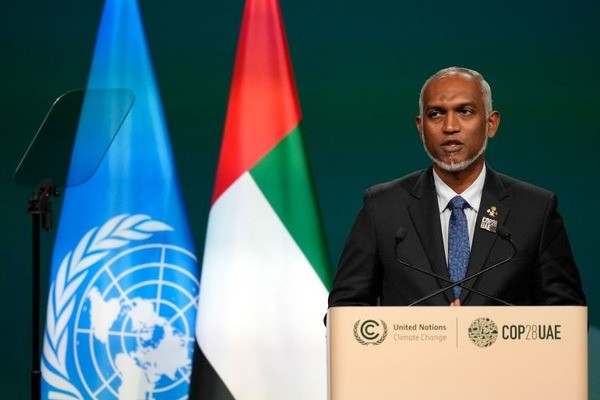Iran’s Plan to Strike Back Against the U.S.
Iran’s Military Preparations Following U.S. Attacks
Loading...

The ban from the Indian Ocean archipelago is a show of solidarity with the people of Gaza enduring relentless attacks and widespread hunger.
Amid mounting public outcry in the predominantly Muslim nation over the conflict in Gaza, the Maldives government has decided to prohibit Israelis from entering the Indian Ocean archipelago, renowned for its pristine beaches and upscale resorts.
According to a spokesman for President Mohamed Muizzu, the decision to impose a ban on Israeli passport holders was made in response to escalating tensions, although specifics regarding the implementation timeline were not disclosed.
President Muizzu also unveiled a nationwide fundraising initiative dubbed "Maldivians in Solidarity with Palestine." Last year, nearly 11,000 Israelis visited the Maldives, constituting 0.6 percent of total tourist arrivals. However, official figures indicate a significant decline in Israeli visitors, with only 528 recorded in the first four months of this year, marking an 88 percent decrease compared to the same period last year.
Pressure from opposition parties and government allies in the Maldives has been mounting on President Muizzu to enforce the ban on Israelis as a symbolic gesture of solidarity with the Gaza war victims. Since October 7, the conflict has resulted in the deaths of at least 36,439 Palestinians and left 82,627 wounded.
The Maldives had previously lifted a ban on Israeli tourists in the early 1990s and made efforts to normalize relations in 2010. However, these efforts were derailed following the ousting of President Mohamed Nasheed in February 2012.
Responding to the ban, a spokesman for the Israeli Foreign Ministry advised Israeli citizens currently in the Maldives to consider leaving, citing potential difficulties in providing assistance if they encounter distress.
It's worth noting that Israeli passport holders face similar entry restrictions in several other countries, including Algeria, Bangladesh, Brunei, Iran, Iraq, Kuwait, Lebanon, Libya, Pakistan, Saudi Arabia, Syria, and Yemen.
In March, the State of Israel responded with a casual "We're good" to a post discussing entry bans imposed by these countries, which were in place prior to the onset of the Gaza conflict.
Iran’s Military Preparations Following U.S. Attacks
Troops remain in five strategic locations, raising fears of renewed tensions and long-term occupation.
Opposition forces have taken control of the capital after a significant offensive. Here is how it unravelled.
